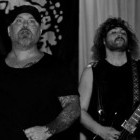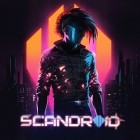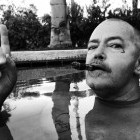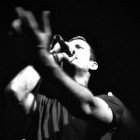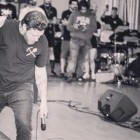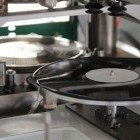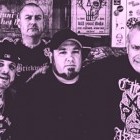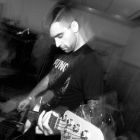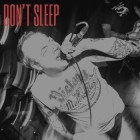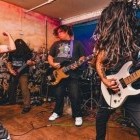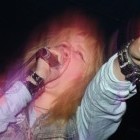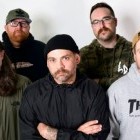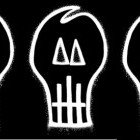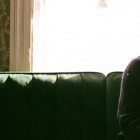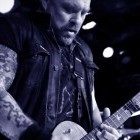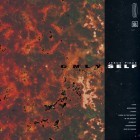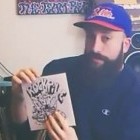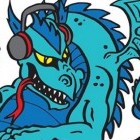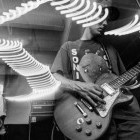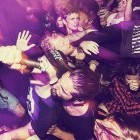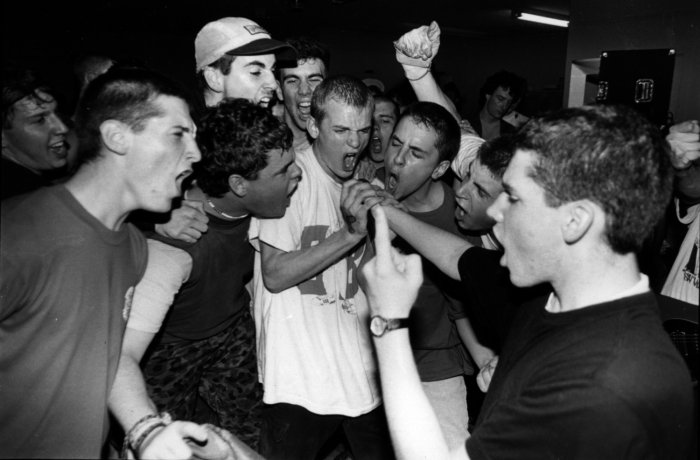
Earlier this month, I organized '90s Hardcore Week on the site, covering a wide cross-section of bands and styles from that era. One of the albums I wanted to highlight that week was Turning Point's It's Always Darkest...Before the Dawn. Due to some scheduling setbacks, we couldn't get it together in time.
But let's get that rectified today.
Turning Point formed in 1988 by members of the New Jersey hardcore scene who had played in such bands as Pointless, Awareness, and Failsafe. While the group's earlier, more Youth Crew-styled material appeared on their demo and eponymous 7 inch, they would begin to shift their sound into a more melodic direction by the time they began constructing the material that would end up on their album.
Released in 1990 by New Age Records, It's Always Darkest...Before the Dawn would go on to become the sole studio Turning Point full-length, with the group breaking up the year after it initially arrived in stores. Despite all this, the album's influence can still be heard decades later in the sound of bands like Fury and Mil-Spec.
In this No Echo exclusive, I chat with Turning Point guitarist Jay Laughlin and drummer Ken Flavell about the making of It's Always Darkest...Before the Dawn.
Throughout the years, I’ve met many people who when then they bring up Turning Point, they make the distinction between the “heavy” and “melodic” periods of the band. First off, do you think that’s a fair call?
Jay Laughlin: Yeah, I totally agree with that. When we started, we were pretty young and I had just switched over to playing guitar after being a drummer for many years prior. The earlier stuff was just straight up classic hardcore of the time. As we went along, I became much more confident in my guitar playing and songwriting. We all kinda wanted to do a little more with the songs, and [vocalist] Skip [Candelori] absolutely started writing much more personal lyrics in the later stages of the band, so it did become much more of its own thing in the LP-era of that band.
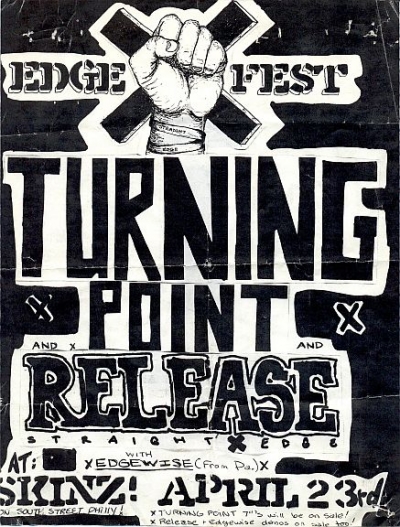
When you were writing the material for Its Always Darkest...Before the Dawn, did you guys talk about focusing on the melodic side of things, or did that just happen organically?
Jay Laughlin: We never really talked about what we wanted to do. It all just happened organically back then. I’d bring in song/riff ideas and we we’d all work together for the arrangements until had something we were all stoked to play. The progression just happened naturally over time while we all got better at our instruments.
Ken Flavell: We never said, "hey, lets write a song like this..." Writing just came naturally. Jay was never short on riffs and things always seemed to just flow. The LP is a reflection of what we were listening to at the time.
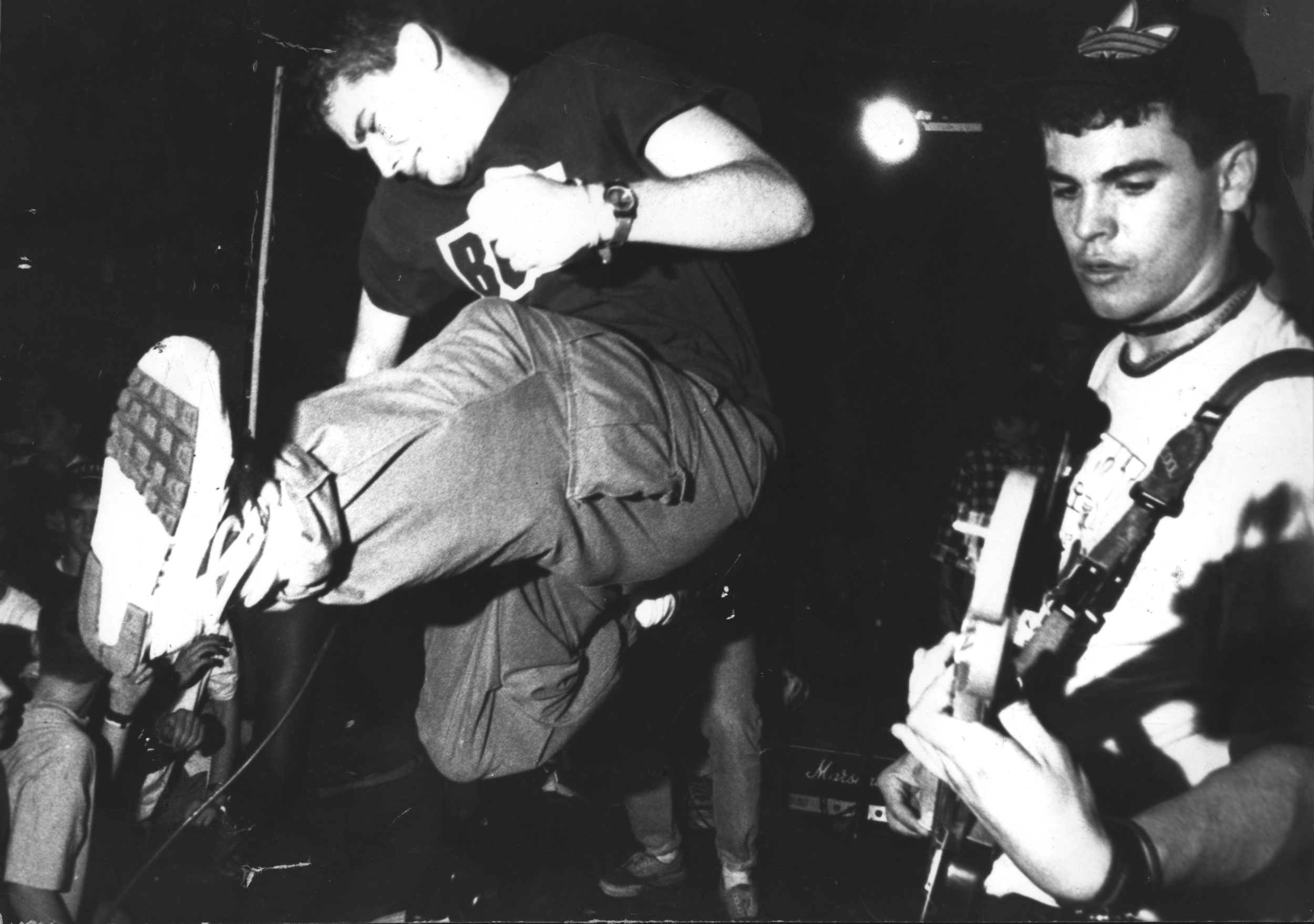
Speaking of which, on the influences side of things, what do you remember being some of the other bands, or musical styles, that the band was listening to during that era?
Jay Laughlin: I can only speak for myself on this one. I only really listened to metal, punk, and hardcore back then: Slayer, Metallica, DRI, Verbal Assualt, JFA, SNFU, 7 Seconds, etc. If it wasn't loud and fast, I didn’t really care about it. The other guys were definitely getting into more varied stuff and had a little more of an open mind. I did come around, but it took me a bit longer then the other guys.
Ken Flavell: In the early days it was all about Slayer, Raw Deal, and Breakdown. Turning Point was definitely going in that direction. I was always into melodic hardcore and wanted to move in that direction, so Jay and I started Shadow Season. We were always huge fans of Verbal Assault, Dag Nasty, and 7 Seconds and the first Shadow Season EP from 1991 definitely reflects that sound. Eventually that flowed into what Turning Point started doing.
Skip and I were listening to a lot of Smiths and Morrissey as well. That's when I noticed Skip's lyrics really started to grow. All of our musical tastes were expanding and it is very evident on It's Always Darkest...Before the Dawn.
At what point did New Age Records become involved? How did you guys connect with Mike Hartsfield in the first place?
Jay Laughlin: It’s been so long, so I’m really not sure. I assume Mike got a copy of the Hi-Impact 7 inch and contacted us. I remember we got around 500 bucks and a one-page contract sent to my house to make that LP.
Ken Flavell: We recorded a demo of about 4 songs to shop around to record labels and New Age was on our list. We sent it off to Mike and he was really into what we were doing and offered to do our record.
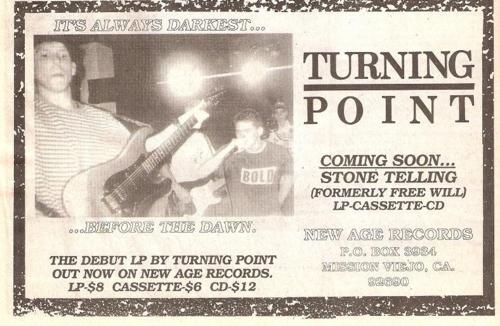
What do you remember about the recording experience? You tracked the album at Why Me? recording studios in New Jersey. Thinking back to studios back then, it always seemed like the engineers came from either a heavy metal or jazz background.
Jay Laughlin: I’m pretty sure we got introduced to Joe and Dave, the owners of Why Me?, studio owners through Steve Crudello, who had played second guitar with us for a little while in the 7 inch era. I think he did a session there and hooked up our first session for a comp. track before we did the LP.
Those guys were great to work with. I don’t think they had heard anything like what we were doing, but totally let’s do our thing without any judgement and I ended up recording a ton of stuff at Why Me? for many years even after Turning Point ended. They weren’t metalheads or jazz guys, they were pretty deep into the '70s prog rock stuff, though.
Ken Flavell: We always loved recording at Why Me? The thing that sticks with me the most was being blown away by Skip. At practice, we couldn't really hear him that well and we certainly couldn't understand what he was saying. Once he started singing over those songs we were like, "holy shit!" The growth he had in that short period of time was unbelievable.
From your standpoint, what do you remember the response to the record being like? All these years later, there are kids just getting into hardcore and discovering the record.
Jay Laughlin: The response seemed good at the time. It wasn’t until we did the later split/compilation tracks that it seemed people started to lose interest in what we were doing, really. Which is funny, because now the later stuff seems to be the songs that people connect with most. It is really cool to have made these songs so many years ago with a couple of my best friends that still seems to connect with new hardcore kids all the time. I feel lucky for that.
Ken Flavell: I remember the response being positive but I feel like it really didn't take off until the band had ended. That's part of why we broke up, we felt people didn't care.
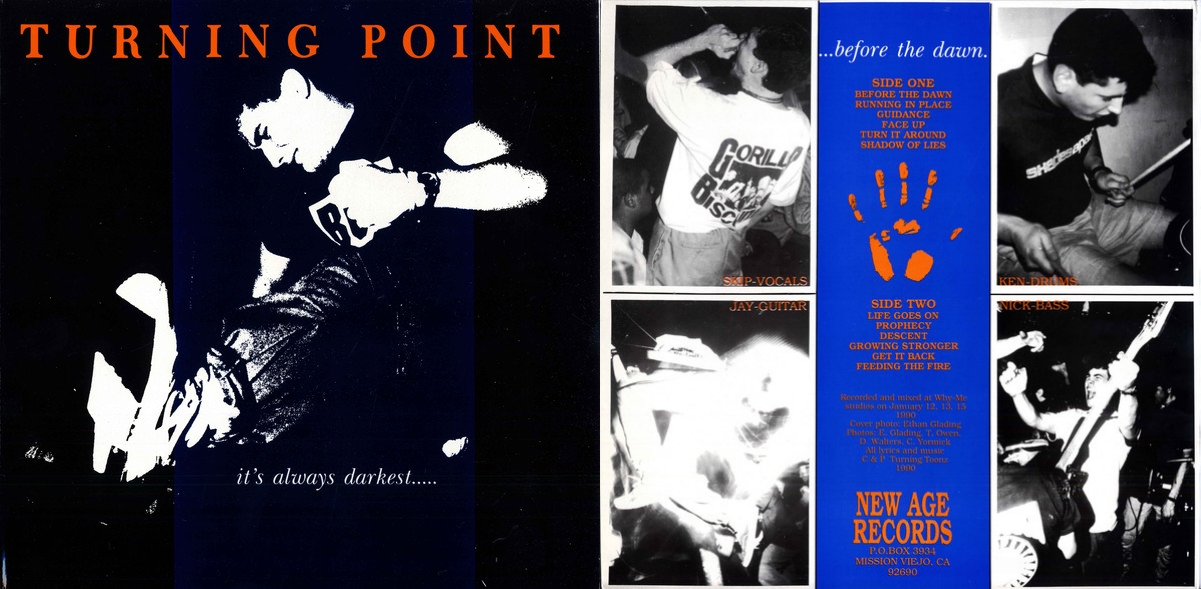
Did you get to do many shows after the album came out?
Jay Laughlin: We never got to tour properly back then. We played around the East Coast a bunch, but never made it out west before we split up.
Listening to the album all these years later, is there anything you would change about it?
Jay Laughlin: Ummm…If I have to be honest? I’d nix the couple of little slap bass parts. Don’t tell Nick [laughs]. But really, any record is just small document in time and I’m still proud of what we recorded. To think about changing anything now is kinda ridiculous. Except, I really wish Metallica would remix ...And Justice for All and put the fucking bass guitar back into the mix. I’d be behind that 100%!
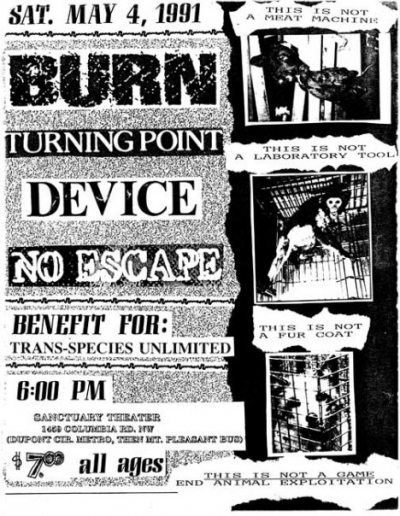
Looking back, why do you think the Its Always Darkest...Before the Dawn is still talked about? Outside of the actual music, is there something else you think has contributed to its legacy?
Jay Laughlin: I think the fact that Darren Walters and Tim Owen put the discography out on Jade Tree [available here] was a huge help in cementing our place in hardcore music. It gave a ton of kids a chance to discover us that probably wouldn’t have otherwise. If the music wasn’t good nothing would have helped us, but that exposure was really big as far as giving the music the longevity its had over the years for sure.
Ken Flavell: I think the emotion of Skip voice and his delivery was a major factor.
What’s your favorite song on the album and why?
Jay Lauhlin: "Before the Dawn," the lead off track, is my favorite. If you listen to it, theres not one riff that is repeated in that song. It’s just one riff onto the next and so on. It’s a lot of ideas jammed all into one song, and I always thought that was a cool. It’s almost too many ideas for one song, but it works really well.
Ken Flavell: I have to go with "Before the Dawn." It was always fun to play live. Total ripper to play on the drums.
***
Donate a few bucks to help with No Echo's operating costs:
***
Tagged: turning point

